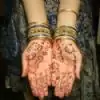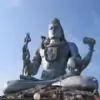- Nusrat Fateh Ali khan died at a young age of 49 years
- Nusrat's family has a tradition of performing Qawwali for approximately 600 years
- Nusrat began the fun of Qawali by learning to play tabla alongside his father before progressing to learn Raag Vidya and Bolbandish.
- He then went on to learn to sing within the classical framework of khayal in the Qawwal Bachchon Ka Gharana and was taught dhrupad from the Dagar family.
- His training with his father was lived as his father died in 1964
- He then went to Ustad Mubarak Ali Khan and Ustad Salamat Ali Khan (a very big name in classical singing), to complete his training.
- His first performance was at a traditional graveside ceremony for his father
- In 1971, after the death of Ustad Mubarak Ali Khan, Nusrat became the official leader of the family Qawwali party
- His first public performance as the leader of the Qawwali party was at a studio recording broadcast as part of an annual music festival organised by Radio Pakistan
- He sang mainly in Urdu and Punjabi and occasionally in Persian, Brajbhasha and Hindi
- His first major hit in Pakistan was the song Haq Ali Ali, which was performed in a traditional style and with traditional instrumentation.
- Early in his career, Nusrat was signed up by Oriental Star Agencies [OSA] of Birmingham UK.
- OSA sponsored regular concert tours by Nusrat to the U.K. from the early '80s onwards
- Nusrat reached out to Western audiences through his collaborations with Canadian musician, Michael Brook and his work with Pearl Jam lead singer Eddie Vedder in 1995 on the soundtrack to Dead Man Walking.
- He went on to gain popularity in the West through his contributions to the soundtracks of The Last Temptation of Christ and Natural Born Killers, together with his friendship with Peter Gabriel. Nusrat was unhappy with the use of his vocals on the Natural Born Killers soundtrac
- Peter Gabriel's Real World label later released five albums of Nusrat's traditional Qawwali, together with some of his experimental work which included the albums Mustt Mustt and Star Rise.
- Nusrat provided vocals for The Prayer Cycle, which was put together by Jonathan Elias, but died before the vocals could be completed. Alanis Morissette was brought in to sing with his unfinished vocals.
- He also performed traditional Qawwali before international audiences at several WOMAD world music festivals and the single Dam Mast Qalandar was remixed by electronic trip hop group Massive Attack in 1998.
- Nusrat contributed songs to, and performed in, several Pakistani films. Shortly before his death, he recorded a song each for two Bollywood films, Aur Pyaar Ho Gaya (in which he also appeared) and Kachche Dhaage.
- He also sang the immensely-popular title song of the film, Dhadkan. There was also a song sung by him in the movie Kartoos, starting Sanjay Dutt and Manisha Koirola
- Nusrat contributed the song 'Gurus of Peace' to the album 'Vande Mataram', composed by A.R. Rahman, and released to celebrate the 50th anniversary of India's independence.
- According to the Guinness Book of World Records, Nusrat Fateh Ali Khan holds the world record for the largest recorded output by a Qawwali artist'a total of 125 albums.
- Nusrat is responsible for the modern evolution of Qawwali. Though not the first to do so, he popularized the blending of khayal singing and techniques with Qawwali.
Nusrat's Qawwali usually follows the standard form. A song begins with a short instrumental prelude played on the harmonium, accompanied by percussion. Then the instruments refrain, and the main singers launch into the alap, which establishes the raag, the tonal structure of the music. At this point, introductory poetic verses are sung. These are usually drawn not from the main song, but from thematically related songs. The melody is improvised within the structure of the raag.
- After the introductory verses, the main song starts, and the rhythmic portion of the song begins. The tabla and dholak begin to play, and the chorus aids and abets percussion by clapping their hands.
- The late American rock singer Jeff Buckley paid his tribute to Nusrat on the album, Live at Sin-. In his introduction, he states, "Nusrat, he's my Elvis," before performing the song "Yeh Jo Halka Halka Saroor Hai."
- On his death, WBAI-NY in New York aired only his music for 25 hours non-stop.
- Eddie Vedder said, "I was lucky to work with Nusrat, a true musician who won't be replaced in my life.
- SPIN magazine listed Nusrat as one of the 50 most influential artists of music in 1998.
- Paul Williams picked a concert performance by Nusrat for inclusion in his 2000 book The 20th Century's Greatest Hits: a "top-40" list, in which he devotes a chapter each to what he considers the top 40 artistic achievements of the 20th century in any field (including art, movies, music, fiction, non-fiction, science-fiction).
Please pay your tribute to this legend by dedicating your favorits NFAK's song.



























